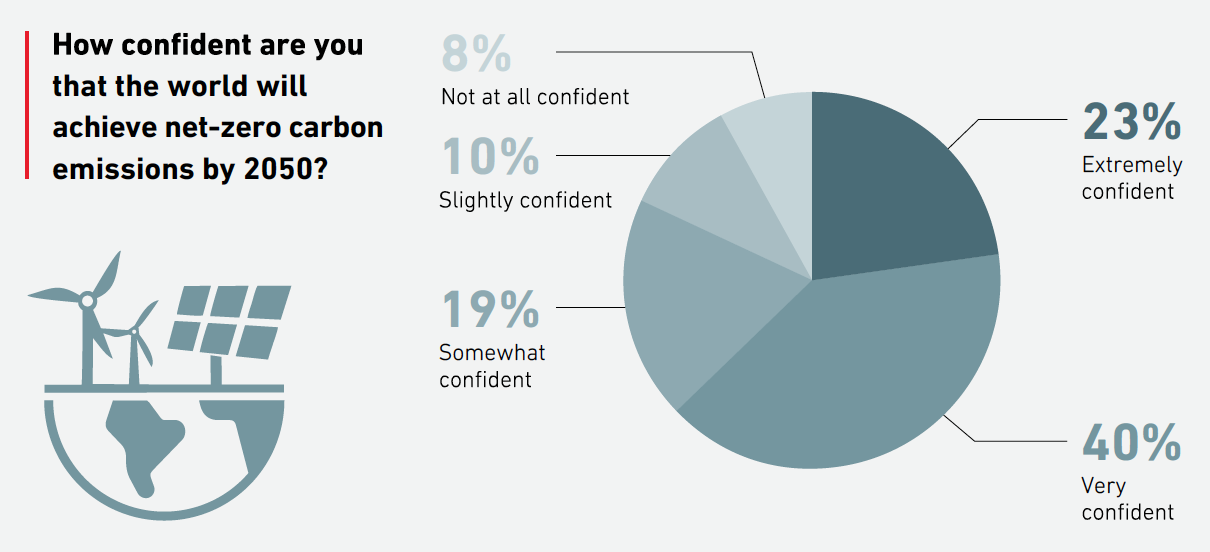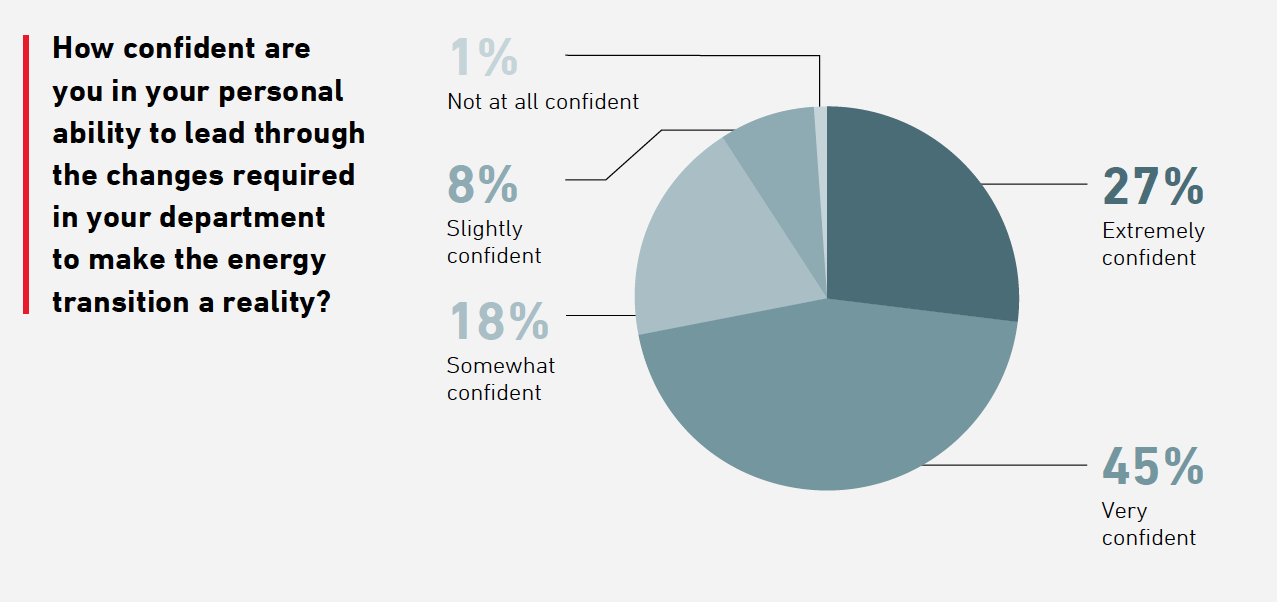Net zero by 2050: Why industry leaders are confident of success

We are now 25 years away from 2050, a key date for decarbonization targets to prevent global warming beyond 2℃. At this critical moment, however, there is political and regulatory uncertainty around the world that may jeopardize efforts to reach net-zero emissions by 2050.
But there is reason for optimism — a survey by MHI and Utility Dive’s studioID reveals that leaders across utilities, oil & gas and heavy industry are confident that the world will reach net-zero emissions by 2050. They are also confident in their own leadership skills to make the energy transition a success.

What is driving this positivity? Let’s explore what the data tells us about leaders’ commitment to decarbonization at this moment in time:
Better technology drives optimism
Among the 135 industry leaders we spoke to, technology came through as the driving force behind their optimism. Over a quarter (26%) of those surveyed cite the growth of renewables as fuelling their optimism. A further 16% back carbon capture, utilization and storage (CCUS), while the same number (16%) say artificial intelligence (AI) gives them the greatest cause for optimism. Hydrogen technologies and battery storage were also cited, demonstrating how closely the flourishing of low-carbon technologies is tied to the energy transition’s success.
The survey data also reveals that leaders are realistic about the challenges facing them, such as a lack of proven technology (30%) and policy/regulatory clarity (26%). Despite these challenges, many respondents identify decarbonization goals as more important (39%) or equally important (36%) as financial goals.
Leaders need robust skill sets to be successful
Leaders across energy and heavy industry are confident in their ability to guide their organizations through an uncertain landscape.

To manage today’s challenging conditions, leaders know they need a wide range of skills. For example, sizeable minorities of those leaders we spoke to cite strategic vision (44%), technological literacy (41%), and cross-functional collaboration (40%) as “extremely critical” leadership qualities. Over a third also identify financial literacy (35%) and stakeholder communication (31%) as “extremely critical.”
But success is not achieved alone
Leaders also understand that they cannot do everything themselves. In their survey responses, they describe how partnerships and high-quality talent throughout their organization are vital to reaching decarbonization goals.
This acknowledgment is important because the energy transition is too complex for any one leader to handle on their own. However, business leaders’ commitment to reaching net-zero and their confidence in guiding their organizations are reasons for hope in mitigating the worst effects of climate change.
With strategic vision, technical skills, and communication abilities, leaders are ready to leverage all available resources — and their own talents — to make the energy transition a success.
![]()
Learn more about the survey data





